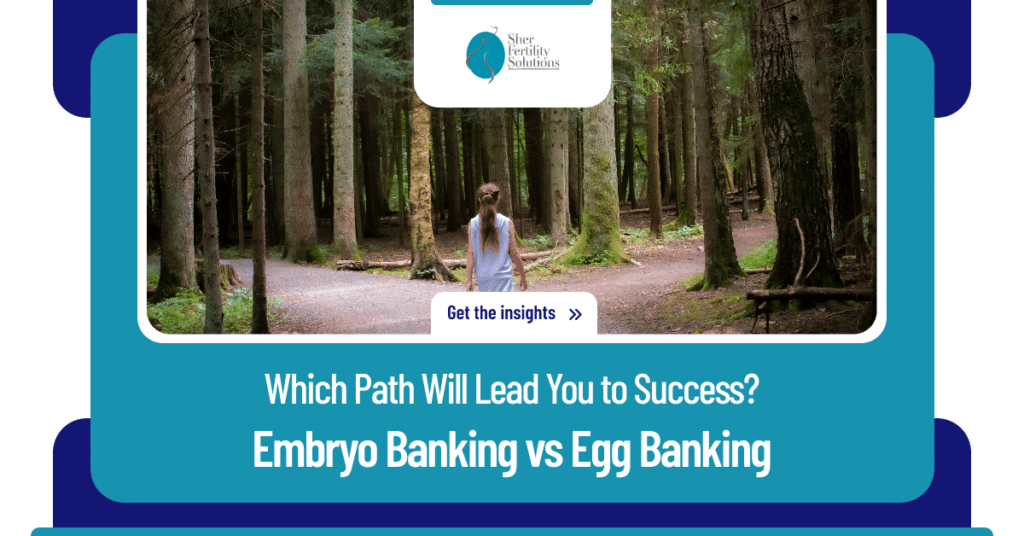It’s crucial for women to make informed decisions about fertility preservation. Delaying trying to conceive, relying on egg freezing, or assuming the biological clock can be paused are misconceptions. As women age, egg quality declines, affecting the chance of a successful, healthy pregnancy.
Let’s break down the key points:
- Age and Egg Quality: As women progress past their mid-thirties, the quality of their eggs declines rapidly. This impacts conception rates, leading to higher miscarriage and chromosomal abnormalities like Down syndrome.
- Comparing Chances:
- At 30, the natural conception rate is around 15-20%, with a 10-15% miscarriage rate and a 1:1000 chance of Down syndrome.
- At 45, natural conception drops to 1-2%, with a 50-60% miscarriage rate and a 1:40 chance of Down syndrome.
- IVF and Age:
- IVF success rates are better at younger ages, with a 50-60% conception rate for 30-year-olds and a 3-5% chance for 45-year-olds.
- However, IVF doesn’t eliminate the increased risk of miscarriage or chromosomal abnormalities as women age.
- IVF Realities:
- The success of IVF dramatically decreases with age, making informed decisions crucial.
Preimplantation Genetic Screening (PGS)/Preimplantation Genetic Testing for aneuploidy (PGT-A) is a breakthrough in fertility treatment, aiding the selection of the most viable embryos for a successful pregnancy. By analyzing all chromosomes, it significantly boosts the success rates of IVF. PGS/PGT-A not only increases the chance of a healthy baby per embryo transfer but also reduces the risks of miscarriages and chromosomal birth defects, regardless of the woman’s age.
Who Benefits from PGS/PGT-A?
PGS/PGT-A) has revolutionized embryo evaluation, especially for those facing unexplained IVF failure, infertility, recurrent pregnancy loss (RPL), and older women with diminished ovarian reserve (DOR).
Embryo Banking: Empowering Older Women
PGS/PGT-A is especially beneficial for women over 39 years of age and those with DOR, as it allows the storage (banking) of healthy embryos over multiple cycles, countering the ticking biological clock. Selective banking of PGS-normal embryos over multiple cycles is a game-changer. It minimizes the impact of age on egg quality, giving these women a chance to make the most of their remaining time to conceive a healthy baby.
Egg Freezing: Factors to Consider
Eggs are vulnerable cells, and freezing a single egg is less effective than freezing a multi-cellular embryo. Additionally, a significant portion of eggs (especially in older women) have chromosomal abnormalities. This makes egg freezing less efficient and embryo freezing, far more successful, especially when selectively freezing PGS/PGT-A-normal blastocysts.
Choosing Between Egg Freezing and Embryo Freezing
Importantly, considering the decline in reproductive potential with age, it’s essential for women and couples to explore their fertility options before the age of 35. An aggressive approach, like moving to assisted reproduction and IVF can significantly improve outcomes. For younger women (<35y) who have normal egg reserves, especially those who are not married, have not as yet settled on la “permanent” male partner or a do not feel secure with their existing male partner fathering a child with them might preferentially choose egg freezing . Conversely, women who are comfortable with a designated male partner, older women and those who have DOR might rather select embryo banking.
In the choice between egg and embryo freezing, caution is advised. Current methods for egg selection lack chromosomal analysis. Conversely the performance of PGS/PGT-A allows for identification of the healthiest embryos for subsequent FET.
Either way, “timing” is a very important consideration.
By understanding these options, you can make an informed decision to maximize your chances of a healthy, happy family. Remember, knowledge is power in the journey to parenthood, as well as your informed choices about age, egg quality, and PGS/PGT-A.
Now, we have an exciting opportunity to offer. For a limited time, new patients starting treatment between October 1, 2023 and February 28, 2024, can benefit from our special offer of $6,500 Egg Banking. Don’t miss this chance to secure your fertility future! Learn more about our Egg Banking promotion on our website.
Your dreams of building a healthy and happy family are within reach, and we’re here to help you every step of the way. Take action today; we’re waiting for you!








